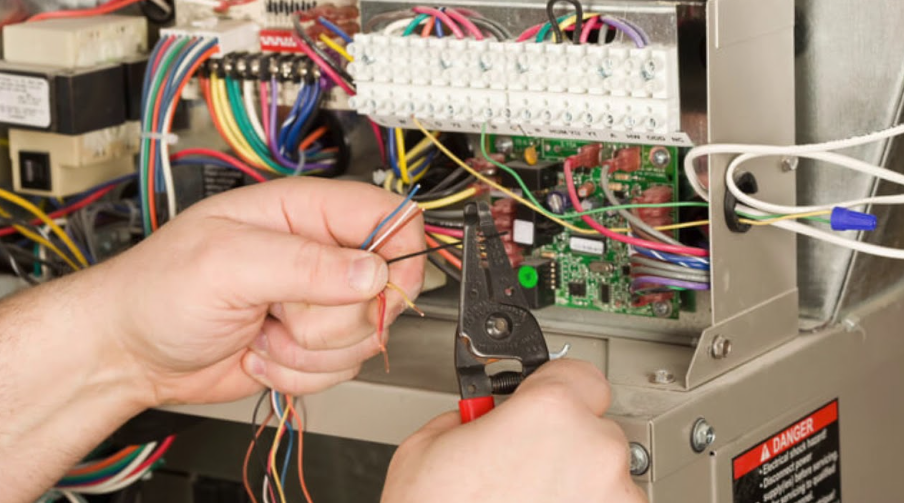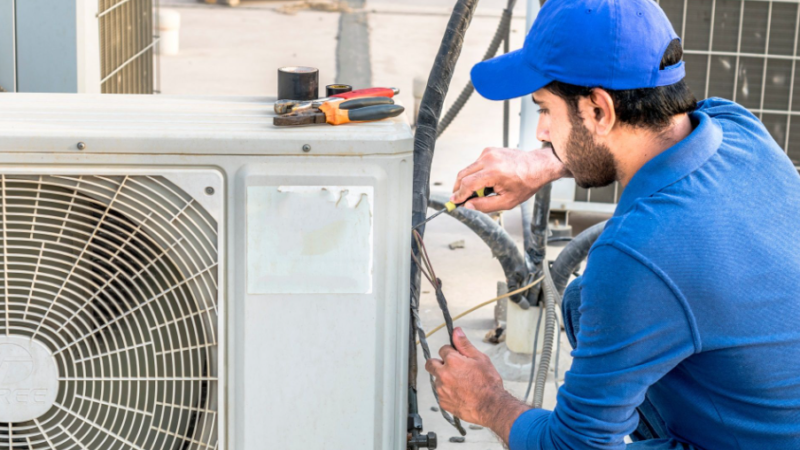Electrical Requirements for Appliance Installation: A Quick Guide

When you’re installing a new appliance in your home, ensuring that your electrical system is ready for the task is crucial. Electrical requirements vary from appliance to appliance, and understanding these needs can save you from unnecessary headaches and potential safety hazards. Whether you’re installing a washing machine, refrigerator, microwave, or dishwasher, it’s important to know what’s required from an electrical standpoint to get the appliance up and running smoothly.
In this quick guide, we’ll walk you through the basic electrical requirements for common household appliances. We’ll also share tips on how to work with an appliance repair specialist in The Villages if you encounter any issues during or after installation. By the end of this article, you’ll be well-equipped to handle your appliance installations with confidence.
Understanding the Basics of Electrical Requirements
Before diving into the specifics of each appliance, let’s first understand the basics of electrical installations for home appliances. Every appliance will require a power source, and this power must match the electrical specifications of the appliance to avoid damage, malfunction, or even a potential electrical fire.
The main factors that affect the electrical requirements for your appliance include:
- Voltage: This refers to the electrical potential difference and is measured in volts. Most home appliances in the U.S. run on 120v or 240v circuits.
- Amperage (Amps): Amps determine the amount of current that the appliance will draw. This is important because a circuit that’s not rated for the correct amperage can cause a fuse to blow or trip a circuit breaker.
- Circuit Requirements: Different appliances require different circuits based on their energy needs. Some may need a dedicated circuit, while others can share a circuit with other appliances.
Let’s break down the electrical requirements for some of the most common household appliances.
1. Refrigerators
Refrigerators are one of the most important appliances in any home, and they often require a significant amount of electricity to run efficiently. Most refrigerators in the U.S. require a 120-volt outlet and must be plugged directly into a wall socket. Here’s what you need to know:
- Voltage: 120v
- Amps: Usually between 3 to 6 amps, depending on the model and size.
- Dedicated Circuit: Many modern refrigerators, especially those with ice makers or water dispensers, may require a dedicated circuit to prevent overloading. This is especially important if your refrigerator has a large energy demand.
- GFCI Protection: For refrigerators located near water sources (such as kitchens or basements), a Ground Fault Circuit Interrupter (GFCI) may be required to ensure safety.
Tips:
- Avoid plugging your refrigerator into an extension cord or surge protector, as this can lead to overheating or a fire risk.
- Ensure that the circuit is properly grounded for safety.
2. Dishwashers
Dishwashers are another essential household appliance, and they also have specific electrical needs. While they generally don’t use as much power as a refrigerator, it’s still essential to install them correctly to ensure safe operation.
- Voltage: 120v
- Amps: 10 to 15 amps.
- Dedicated Circuit: Dishwashers should be installed on a dedicated circuit. This is because they require consistent power to function efficiently, and sharing a circuit with another appliance could cause overloading.
- Wiring: Most dishwashers are hardwired into the electrical system, which means you may need to have an electrician handle the installation.
Tips:
- Make sure the dishwasher is connected to a GFCI outlet if it’s installed in a wet area like a kitchen.
- Consider hiring a professional appliance repair specialist in The Villages if you’re unsure how to wire the dishwasher.
3. Washing Machines
Washing machines require a significant amount of power, especially when the motor is running during the spin cycle. Here are the general electrical needs for washers:
- Voltage: 120V
- Amps: Typically 10-15 amps.
- Dedicated Circuit: Like dishwashers, washing machines should be installed on a dedicated circuit to avoid tripping the breaker when both the washer and dryer are running.
- Wiring: Washing machines are generally plugged into standard wall outlets, but older models may require hardwiring.
Tips:
- Make sure the outlet is grounded properly to avoid electrical hazards.
- If your washing machine isn’t working as expected, consider reaching out to an appliance repair specialist in The Villages for assistance.
4. Ovens and Ranges
Electric ovens and ranges have higher energy demands compared to other appliances. They typically require more power and a dedicated circuit to run safely.
- Voltage: 240V
- Amps: Typically between 30 and 50 amps, depending on the model and size.
- Dedicated Circuit: A 240V outlet is required, and this should be on its own dedicated circuit. You should never share this circuit with other appliances.
- Wiring: Electric ovens are usually hardwired to the electrical system, so professional installation by an electrician is recommended.
Tips:
- Make sure your oven or range has its own dedicated circuit to prevent overheating.
- Always turn off the power at the breaker before installing or maintaining an electric oven.
5. Microwaves
Microwaves are often considered a staple in modern kitchens, but they also come with specific electrical requirements.
- Voltage: 120V
- Amps: Typically 5-15 amps.
- Dedicated Circuit: Microwaves are generally plugged into a standard outlet but should be plugged directly into the wall. Some larger models, however, may require a dedicated circuit.
- GFCI Protection: If the microwave is installed near a sink or water source, it should be connected to a GFCI outlet for safety.
Tips:
- Avoid using extension cords or power strips, as microwaves can easily overload these.
- Ensure the microwave is not blocking ventilation and that the outlet is accessible for maintenance.
6. Dryers
Electric dryers are common in many homes and are known for their high power consumption. Like ovens and ranges, they require 240V circuits to operate safely.
- Voltage: 240V
- Amps: 30 amps.
- Dedicated Circuit: Dryers require a dedicated 240V circuit and a special outlet designed for high-power appliances.
- Wiring: Dryers are typically hardwired into the electrical system.
Tips:
- Make sure the dryer vent is installed correctly to avoid moisture buildup and potential fire hazards.
- Schedule an inspection if your dryer isn’t performing properly, and reach out to an appliance repair specialist in The Villages if necessary.
7. Air Conditioners
Air conditioners, especially central systems or window units, have specific electrical requirements based on their size and efficiency.
- Voltage: 120v for small window units, 240v for larger systems.
- Amps: Typically between 10 and 30 amps, depending on the size of the unit.
- Dedicated Circuit: Larger systems like central air conditioners or larger window units require a dedicated circuit to prevent power surges.
Tips:
- Have a professional install or check your air conditioner to ensure it meets local electrical codes.
- Use surge protectors where possible to protect your investment.
Working with an Appliance Repair Specialist in The Villages
When it comes to electrical installations, it’s always best to hire a professional if you’re unsure about the requirements. A local appliance repair specialist in The Villages can help ensure that your appliance is installed correctly and functioning efficiently. They can also assist with any issues that arise after installation, such as electrical malfunctions or power surges.
FAQs
1. Do I need an electrician to install my appliances?
While smaller appliances like microwaves and refrigerators can usually be plugged in by the homeowner, larger appliances like dishwashers, ovens, and dryers should be installed by a licensed electrician. This ensures that all safety protocols are followed and that your electrical system is not overloaded.
2. Can I use an extension cord for my refrigerator or washing machine?
It’s generally not recommended to use extension cords for high-powered appliances like refrigerators and washing machines. These appliances need a stable power supply, and extension cords can be a safety hazard. Always plug appliances directly into a grounded wall outlet.
3. How do I know if my appliance is correctly installed?
If your appliance is not functioning properly or you experience frequently tripped breakers, there may be an issue with the installation. In such cases, it’s best to consult an appliance repair specialist in The Villages to diagnose the problem.
Conclusion
Proper electrical installation is crucial for the safe and efficient operation of household appliances. By understanding the voltage, amperage, and circuit requirements for your appliances, you can ensure that they work properly and safely. When in doubt, it’s always a good idea to consult with a professional to make sure everything is wired correctly. With the right approach, your appliances will perform as expected, and you’ll avoid the risk of electrical hazards in your home.





